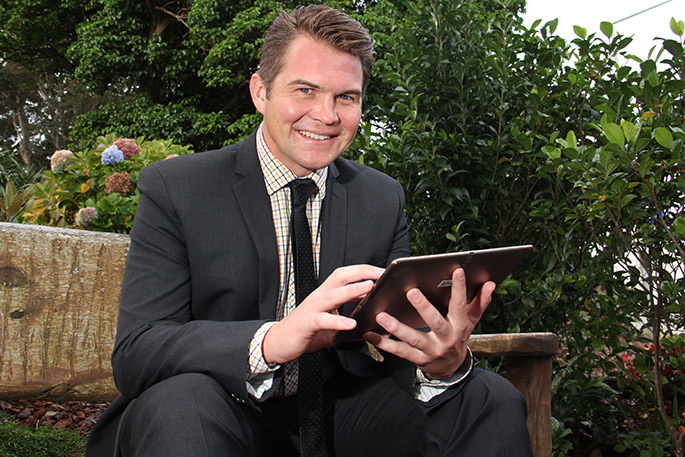This October we all get to have our say on who runs our city via the local body elections – but the process of voting will not be dragged into the 21st Century this time round.
Associate Local Government Minister Louise Upston has announced an online voting trial proposed for eight councils at this year's local body elections will not proceed.
But while Tauranga didn't put its hand up for the test-run, one councillor says the technology should replace postal voting in the under-utilised local body election system.
Tauranga City councillor Matt Cowley, who uses online platforms including social media to communicate with constituents, says online voting is the way of the future.
'It does need to happen,” says Matt, who has more than 1000 people following his Facebook page ‘Matt Cowley for Tauranga'.
'It's a way of gauging people through polls and people are used to doing that – whether for 'things like ‘X Factor' or public shows – they are used to voting online.
'That is the way, culturally, we are heading in terms of social media,” says the 33-year-old who is TCC's youngest in council chambers.
Louise says more work required to ensure a test-run meets public and government expectations. 'Due to timing restrictions, preparations for the proposed trial have not yet met legislative requirements and cannot guarantee public confidence in the election results.
'Security testing has been planned but hasn't yet occurred. Without seeing the results we cannot be confident the systems are secure enough, and the trial could not be authorised.”
Matt agrees, saying online voting needs to be secure enough to ensure it is robust and legal 'because we would be electing our local government on that”.
But he also says 'without a doubt” the way to make it easy for people to have their say would be an online voting process.
'It's difficult for people to remember to change their address when they move house; and there's very few people I know who actually post things these days.
'And given local government doesn't really excite too many people it's a barrier that is totally unnecessary.”
Matt engages with his communities on Facebook page, Twitter and via email.
And while he says technology works with the younger demographic – as would online voting – it is still up to would-be candidates to appeal to voters.
'They need to appeal to the younger demographic. The voter return for TCC's local body elections in 2013 was about 37 per cent and that's a downward trend.”
Matt says TCC briefly discussed joining the now-cancelled trial but didn't think being a guinea pig was beneficial in this case.
'But I would like to think, as a council, once an online option does exist we'd back it 100 per cent,” says Matt.
TCC voter returns are decreasing, with 2013 posting 37.77 per cent, while 2010 saw 43.64 per cent, 2007 had 46.36 per cent and 2004 received 44.18 per cent.
'The downward trend [of voter return statistics] is a nationwide thing and not specific to Tauranga and there are all sorts of demographic and social issues as to why that is the case – which is why we promoted online voting to give an option to capture more votes from those who might be interested in that approach.
'And it is disappointing the Government has chosen not to proceed with that [trial].”
Online voting in NZ has been extensively used in the last 16 years by all sorts of public and private organisations, says Warwick.
'For example, the TECT election coming up is using online voting and has done so since 2008 and there are organisations like Fonterra or even the NZ Labour Party and the Green Party – they've used online voting for a long time.”
While there is no direct comparison to NZ's local body elections system, Warwick says overseas Canada uses online voting in local government elections and Australia's New South Wales uses it for state elections.

